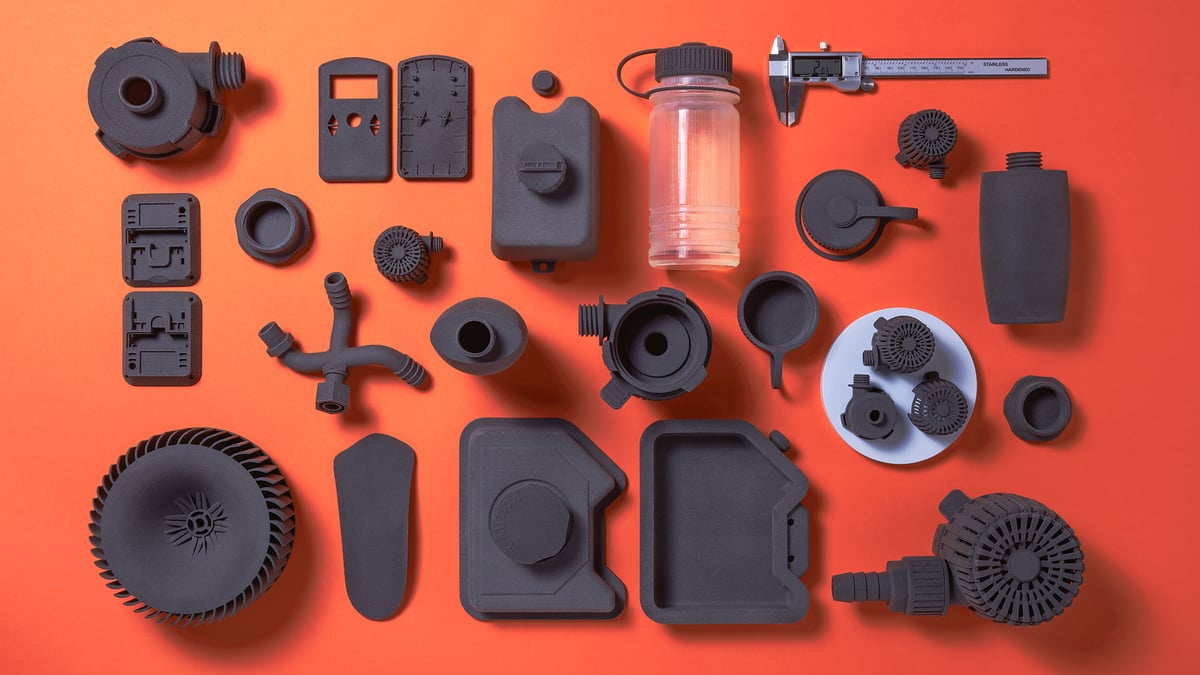As one of the most accessible selective laser sintering (SLS) 3D printers on the market in terms of price and ease of use, Formlab’s Fuse 1+ 30W has become a go-to machine for all types of parts in nylon. Now, Formlabs, at the 2024 Consumer Electronics Show in Las Vegas, is launching a new material for the Fuse: polypropylene (PP).
Polypropylene is the second-most widely produced commodity plastic in the world and a favorite for injection molding. When 3D printing with PP, it retains all of its sought-after properties, including its light weight, durability, flexibility, and recyclability. Hinges and hoses, for example, represent a very popular use since PP can repeatedly bend without breaking.
PP has a lower moisture absorption rate than nylon and is more resistant to water and moisture-induced degradation, which makes it suitable for applications where water resistance is important, such as automotive hoses, reservoirs, and housings, as well as outdoor products. Polypropylene is also less affected by chemical exposure than nylon, particularly to acids and solvents, plus it performs well is sub-zero temperatures.
The Fuse SLS had only offered nylon PA11 (plus CF-PA11), nylon PA12 (plus GF-PA12), and TPU as material options before now.
“Polypropylene powder will expand the SLS portfolio, enabling users to print products commonly made of polypropylene, such as home appliances, electronics, sports equipment, custom lab equipment, prototypes, manufacturing tools, and more, efficiently and at a low cost with Fuse 1+ 30W 3D printers,” says Formlabs.

More 3D printing advantages of PP include its very high powder refresh rate and comparatively low melting temperature, which aligns with the Fuse’s lower-cost fiber laser. Similar to FDM, however, warpage is a significant concern that not only affects dimensional accuracy but may also lead to print crashes, making polypropylene a difficult material to work with.
The Fuse is far from the only SLS printer capable of producing parts in PP, which you can find on the menu of the Sinterit Lisa X, Farsoon eForm, Nexa3D QLS 230, and others.
PP in general is usually cheaper and easier to produce than nylon. Formlabs PP powder retails for $450 for 5 kg and is now its least expensive polymer powder option. It is more recyclable and has a lower environmental impact compared to nylon. Formlabs PP boasts an ultimate tensile strength of 29.0 MPa, flexural strength of 37.0 MPa, and a tensile modulus of 1.64 GPa.
License: The text of "3D Printing with Polypropylene on the Formlabs Fuse 1+ 30W" by All3DP Pro is licensed under a Creative Commons Attribution 4.0 International License.

